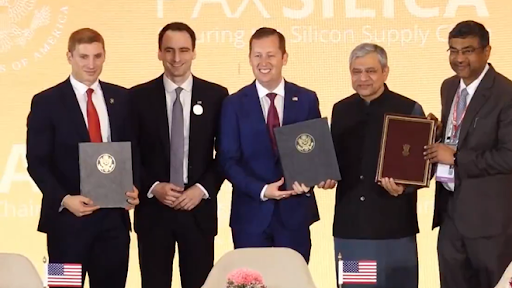



India suspended the Indus Waters Treaty after a terror attack in Kashmir, blaming Pakistan. Though symbolic for now, it halts data sharing and cooperation on river projects. The treaty, vital for Pakistan’s water needs, lacks exit or suspension clauses, leaving Pakistan with limited legal or diplomatic options to respond.

Copyright infringement not intended
Picture Courtesy: INDIAN EXPRESS
India suspended the Indus Waters Treaty after a deadly terror attack in Kashmir, intensifying tensions with Pakistan.
The Indus Waters Treaty was signed in 1960, brokered by the World Bank.
It is an agreement between India and Pakistan that divides the waters of the Indus River system. This system includes six rivers: Indus, Jhelum, Chenab, Sutlej, Beas, and Ravi.
The treaty provides India full control over the Eastern Rivers (Sutlej, Beas, Ravi) and Pakistan primary rights over the Western Rivers (Indus, Jhelum, Chenab), though India can use these for limited purposes like hydropower.

The Indus system is vital—it starts in Tibet, flows through India’s Ladakh and Jammu & Kashmir, then into Pakistan, supporting agriculture, drinking water, and power for millions. For Pakistan, 80% of its farming depends on these waters.
The treaty has lasted through wars (1965, 1971, 1999) and decades of tension, making it a rare point of cooperation. But now, India has suspended it.
In April 2025, India announced it is suspending the IWT after a terrorist attack in Pahalgam, Jammu & Kashmir, killed 26 people. India blames Pakistan for supporting terrorists behind the attack.
This decision follows years of growing tension
However, India can’t immediately stop water flowing to Pakistan. It lacks the dams or canals to redirect or store this water. Building such infrastructure will take years. For now, the suspension is a strong diplomatic message, not a physical cutoff.
Two Indian hydropower projects in Jammu & Kashmir have fueled tensions:
Both projects follow the treaty’s rules, which allow India to build hydropower on Western Rivers if it doesn’t block water. But Pakistan’s objections have led to years of disputes, with the World Bank stepping in to mediate.
Pakistan’s options are limited. The treaty has no exit clause, meaning neither side can legally cancel it alone. It also lacks a suspension clause, so Pakistan can’t force India to restart cooperation through the treaty’s dispute resolution process. Legal experts say Pakistan can’t take India to the International Court of Justice due to India’s legal reservations. This leaves Pakistan with few peaceful ways to challenge India’s move.
Must Read Articles:
Source:
|
PRACTICE QUESTION Q. How does Pakistan’s "proxy warfare" against India affect regional security dynamics? Suggest strategies for mitigating such threats. 250 words |




© 2026 iasgyan. All right reserved